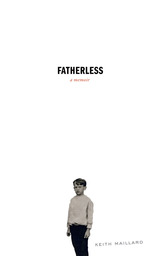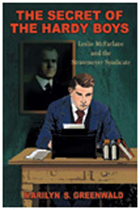
Davidson details the evolution of the U.S. and Canadian Western forms, tracing the divergence between the two as Canadian writers responded to their unique historical circumstances by reinventing the West as well as the Western and establishing a new literary landscape where author and reader could work out new possibilities of being. Surveying a range of texts by Canada’s most innovative writers, with special attention to women writers and Native stories of Coyote, he provides close readings of novels by Howard O’Hagan, Sheila Watson, Robert Kroetsch, Aritha van Herk, Anne Cameron, Peter Such, W. O. Mitchell, Beatrice Culleton, and Thomas King. A unique study, Coyote Country offers at one and the same time a theory of Canadian Western fiction, a history of crosscultural paradigms of the West as manifested in novels, and an intensive reading of some of Canada’s best literature.

This story begins with a phone call out of the blue: a lawyer tells a writer that his ninety-six-year-old father, with whom he has had no contact since the age of three and whom he has twice tried to find without success, has just died, leaving him nothing. Half-reluctant, half-fascinated, both angry and curious, Keith Maillard begins to research his father’s life. The result is a suspenseful work of historical reconstruction—a social history often reading like a detective story—as well as a psychologically acute portrait of the impact of a father’s absence. Walking a tightrope between the known and the unknown, and following a trail that takes him from Vancouver to Montreal to his native Wheeling, West Virginia, Keith Maillard has pulled off a book that only a novelist of his stature could write.

The Secret of the Hardy Boys: Leslie McFarlane and the Stratemeyer Syndicate recounts how a newspaper reporter with dreams of becoming a serious novelist first brought to life Joe and Frank Hardy, who became two of the most famous characters in children’s literature.
Embarrassed by his secret identity as the author of the Hardy Boys books, Leslie McFarlane admitted it to no one-his son pried the truth out of him years later. Having signed away all rights to the books, McFarlane never shared in the wild financial success of the series. Far from being bitter, however, late in life McFarlane took satisfaction in having helped introduce millions of children to the joys of reading.
Commenting on the longevity of the Hardy Boys series, the New York Times noted, “Mr. McFarlane breathed originality into the Stratemeyer plots, loading on playful detail.” Author Marilyn Greenwald gives us the story of McFarlane’s life and career, including for the first time a compelling account of his writing life after the Hardy Boys. A talented and versatile writer, McFarlane adapted to sweeping changes in North American markets for writers, as pulp and glossy magazines made way for films, radio, and television. It is a fascinating and inspiring story of the force of talent and personality transcending narrow limits.

Annette White-Parks offers the first full-length biography of the woman now remembered as North America's first published Asian writer. White-Parks reveals an author who defied the in vogue style of "yellow peril" literature to show Chinatowns and their inhabitants as complex, feeling human beings. Her insider's sympathy focused in particular on Chinese American women and children. Confronted with social divisions and discrimination, Sui Sin Far experimented with trickster characters and irony, sharing the coping mechanisms used by other writers who struggled to overcome the marginalization forced on them because of their race, gender, or class.

READERS
Browse our collection.
PUBLISHERS
See BiblioVault's publisher services.
STUDENT SERVICES
Files for college accessibility offices.
UChicago Accessibility Resources
home | accessibility | search | about | contact us
BiblioVault ® 2001 - 2024
The University of Chicago Press









